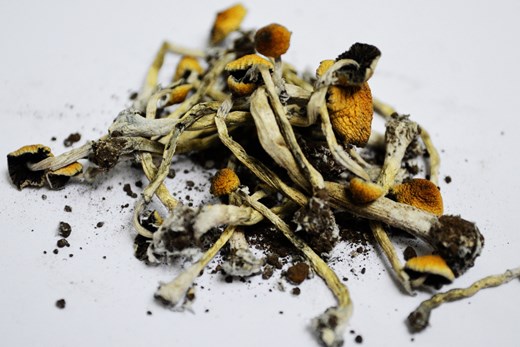How does it make you feel?
How hallucinogens make you feel depends on:
- how much you use
- how often and how long you use
- your mood, expectation and environment
- your age
- whether you have certain pre-existing medical or psychiatric conditions
- whether you’ve taken any alcohol or other drugs (illegal, prescription, over-the-counter or herbal).
Hallucinogens cause mostly psychoactive, or mind-altering, effects, which can be mild to intense. These effects vary from drug to drug, from person to person, from one drug-taking episode to the next, and can even change dramatically within one time of use. Effects can range from ecstasy to terror, from mild distortion of the senses to full hallucinations (where people believe that drug-induced visions or other perceptions are real).
Different types of hallucinogens produce different effects; for example:
- LSD produces a kaleidoscope of visual patterns and changes perception. People who take LSD usually know that the hallucinations are not real; however, the effects can appear real.
- Ecstasy enhances mood and produces feelings of empathy and intimacy.
- Ketamine causes an out-of-body feeling, which may be pleasant or terrifying.
- Salvia causes intense, short-lived hallucinogenic effects, such as smelling sounds or hearing colours.
How long does the feeling last?
The effects of some hallucinogens, such as LSD, last for hours, while others, such as salvia, last only a short time.
Is it addictive?
Most people who use hallucinogens do so occasionally. Repeated use of hallucinogens such as LSD or ecstasy leads to tolerance, where the drug has reduced or no effect. Sensitivity to the drug returns if the person stops using it for a period of time, and then starts again. Stopping use of hallucinogens does not usually cause symptoms of withdrawal. However, people can develop psychological dependence, in which they feel they need the drug.
Is it dangerous?
Most of these drugs are illegal and unregulated, and may include toxins, or not even contain the drug they are sold as. For example, drugs sold as ecstasy are usually not pure MDMA, and have been found to contain other drugs, such as methamphetamine. Drugs sold as mescaline are almost always something else. Hallucinogens affect perception and behaviour. Taking them may cause people to become disoriented, have poor judgment and take risks.
Many hallucinogens can have very unpleasant or toxic effects (e.g., jimsonweed, deadly nightshade). Hallucinogenic plants can be mistaken for other toxic or lethal plants, for example, mushrooms.
Although research is scarce, taking hallucinogens during pregnancy may affect the development of the baby, and increase the chance of miscarriage.
What are the long-term effects of using it?
Hallucinogen use may, on rare occasions, result in “flashbacks,” or replays of the drug experience, days, weeks or even years after the drug was taken. Some people who take hallucinogens feel depressed or anxious long after they took the drug.
